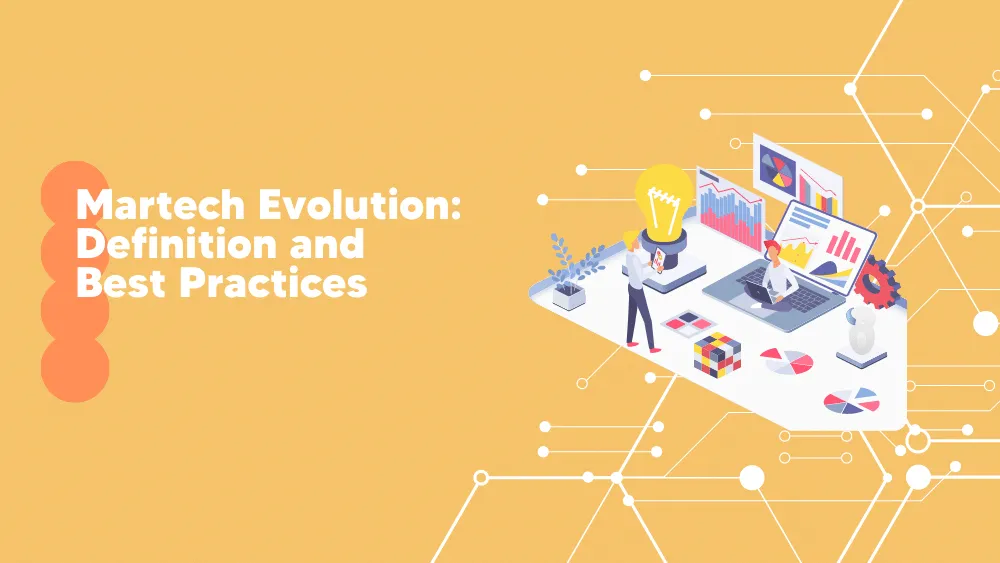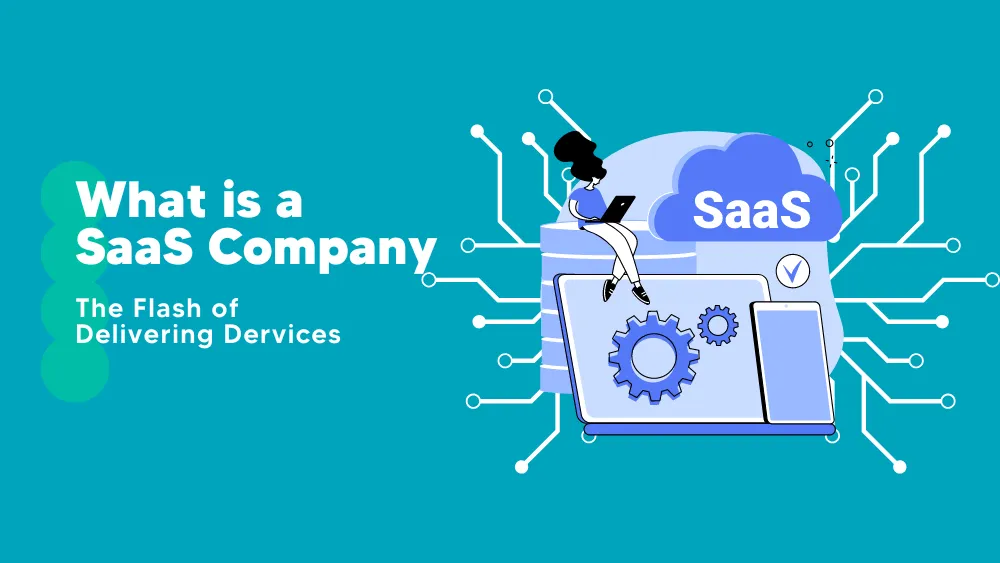Digital marketing is a field that is developing at the highest speed. And staying ahead of the curve is necessary for businesses to remain competitive. As technology advances, marketing professionals increasingly rely on marketing technology, known as Martech, to drive their strategies and achieve their goals.
The evolution of Martech has been driven by the ever-increasing need for marketers to navigate the complexities of the digital landscape. With the rise of social media, mobile marketing, artificial intelligence, and big data, the marketing technology stack has expanded exponentially. This allows marketers to reach their target audience and deliver personalized, impactful messages.
So, marketers must constantly be informed about Martech trends and adapt their strategies to leverage the latest tools and technologies. By embracing Martech’s evolution, businesses can gain a competitive edge, enhance customer engagement, and drive better marketing ROI.
In the following sections, we will analyze the best practices for utilizing Martech effectively in your marketing strategy. We will explore how Martech tools can empower marketers to optimize their campaigns, streamline workflows, and deliver personalized experiences to their target audience. So, let’s start to uncover the strategies that can propel your marketing efforts forward in the modern era!
Understanding Martech Evolution
In the changing marketing realm, staying up-to-date with the latest Martech trends is extremely important for businesses to be competitive. The world of marketing technology has experienced notable growth and transformation over the last years, offering marketers a wide array of tools and strategies to enhance their campaigns and achieve their objectives. It’s easy to understand why keeping pace with Martech’s evolution is becoming increasingly vital for modern marketers.
First, let’s define Martech:
The significance of Martech in the marketing landscape cannot be overstated. With the increasing digitization of consumer behavior and abundant data available, marketers must leverage technology to navigate this complex environment effectively. Martech enables marketers to harness the power of data, automate repetitive tasks, gain actionable insights, and deliver personalized experiences at scale. By integrating Martech into their marketing strategies, businesses can streamline processes, optimize campaigns, and achieve better results.
The evolution from traditional to Martech
Martech has evolved remarkably, transitioning from basic tools to sophisticated software solutions. Initially, Martech was limited to email marketing platforms and rudimentary analytics tools. However, as technology advanced, the development of robust CRM systems, social media management platforms, marketing automation software, and AI-driven analytics solutions revolutionized how marketers approach their campaigns.
Martech tools have become more intuitive, user-friendly, and integrated, allowing marketers to gain deeper insights into their target audience, automate repetitive tasks, and deliver personalized experiences across multiple channels. The rise of cloud computing and software-as-a-service (SaaS) models has further democratized access to Martech, making it more accessible to businesses of all sizes.
As consumer expectations continue to evolve, so does inevitably Martech. Emerging technologies like artificial intelligence, machine learning, chatbots, and voice assistants are reshaping the marketing technology stack. Marketers who stay informed about these trends and adopt the latest Martech innovations gain a competitive advantage by staying ahead of the curve and delivering exceptional customer experiences.
Key Martech Tools and Terminologies
Key Martech Tools
Several key tools have become indispensable for modern marketers in the rapidly evolving marketing technology landscape. Let’s review some of the most popular Martech tools used in the SaaS and software industry:
-
Customer Relationship Management (CRM) Systems
CRM systems enable businesses to manage and analyze customer interactions and data throughout the customer lifecycle. These tools provide a centralized database that helps marketers track leads, nurture relationships, and optimize customer experiences.
-
Marketing Automation Platforms
Marketing automation platforms streamline repetitive tasks and workflows, allowing marketers to automate email campaigns, social media scheduling, lead nurturing, and more. These tools help optimize efficiency, improve engagement, and drive personalized interactions at scale.
-
Analytics Tools
Analytics tools are crucial in understanding customer behavior, measuring campaign performance, and optimizing marketing strategies. They provide valuable insights into website traffic, conversion rates, customer demographics, and other metrics, enabling data-driven decision-making.
-
Content Management Systems (CMS)
CMS platforms facilitate the creation, management, and publication of digital content. They empower marketers to create and optimize websites, landing pages, blogs, and other content assets, ensuring a seamless user experience.
-
Social Media Management Platforms
Social media management tools enable marketers to schedule, publish, and analyze social media content across multiple platforms. They help manage social media campaigns, monitor engagement, and analyze performance.
Key Martech Terminologies
To navigate the Martech landscape effectively, understanding key terminologies and concepts is essential and very useful. Here are some of the most important and used Martech terminologies:
- Data-driven Marketing: Data-driven marketing refers to making strategic decisions based on insights derived from data analysis. Marketers leverage data from various sources, including customer interactions, website analytics, and market research, to optimize campaigns, personalize experiences, and drive better results.
- Personalization: This involves tailoring marketing messages and experiences to individual customers or specific segments. By utilizing customer data and leveraging Martech tools, marketers can deliver relevant, timely, customized content that resonates with their target audience, enhancing engagement and conversion rates.
- A/B Testing: A/B testing, or split testing, involves comparing two versions (A and B) of a marketing asset, such as a webpage or an email, to determine which performs better. Marketers can optimize their campaigns based on data-driven insights by experimenting with different elements, such as headlines, visuals, or call-to-action buttons.
- Lead Generation: Lead generation identifies and attracts potential customers, known as leads, who have shown interest in a product or service. Martech tools, such as landing page builders, lead capture forms and email marketing platforms, assist marketers in generating and nurturing leads throughout the sales funnel.
Understanding and implementing these terminologies effectively can enhance your marketing efforts and drive better results. By embracing data-driven strategies, personalizing customer experiences, leveraging A/B testing, and optimizing lead generation tactics, marketers can unlock the full potential of Martech tools and achieve their marketing goals.
In the upcoming sections, we will delve deeper into best practices for utilizing Martech effectively, including selecting the right tools for your marketing technology stack, integrating them seamlessly into your workflow, and harnessing their capabilities to drive success—time to explore these practices and empower your modern marketing endeavors.
Best Practices for Martech Implementation
We have reached the practical stage, where implementing Martech solutions can pose different market challenges. However, by following best practices, businesses can overcome these hurdles and maximize the benefits of their marketing technology stack. Let’s address some of the most common challenges and provide practical tips for successful Martech implementation.
The main challenges in Martech implementation are:
- Data Integration: One of the primary challenges in Martech implementation is integrating disparate data sources and ensuring data accuracy and consistency. To overcome this challenge, marketers should develop a data integration strategy that defines data sources, establishes data governance practices, and considers data mapping and synchronization between different systems.
- Training and Skill Development: Adopting new Martech tools often requires training and upskilling team members. Invest in comprehensive training programs to ensure that your marketing team understands the capabilities and functionalities of the Martech tools being implemented. This will empower them to leverage the tools effectively and drive successful campaigns.
- System Scalability: As your business grows, your Martech stack should be able to scale accordingly. Consider the scalability of your chosen Martech tools to accommodate future expansion and evolving business needs. Look for solutions that offer flexible pricing models, integration capabilities, and the ability to handle increasing volumes of data and user demands.
With that being said, here are some practical tips for Martech implementation:
Define Your Objectives
Clearly articulate your marketing objectives and align them with the desired outcomes of Martech implementation. Identify key metrics and goals that the technology will help you achieve. This will guide your decision-making process and ensure the selected tools align with your marketing strategy.
Conduct Thorough Research
Before investing in Martech tools, conduct extensive research to understand the market landscape, evaluate different options, and compare features and functionalities. Consider factors such as integration capabilities, scalability, compatibility with existing systems, user-friendliness, and vendor support. Seek recommendations from industry experts and consider peer reviews to make informed decisions.
Prioritize Integration
Assess the compatibility of your existing systems with potential Martech tools. Look for tools seamlessly integrate your current tech stack, including CRM systems, CMS platforms, and analytics tools. Smooth integration will enhance data flow, streamline workflows, and enable centralized reporting and analysis.
Consider User Experience
The user experience of your chosen Martech tools is crucial for adoption and success. Prioritize tools that have intuitive interfaces, easy-to-use features, and comprehensive documentation. Conduct user trials or demos to ensure that the tools align with the skills and requirements of your marketing team.
Leverage Vendor Support and Communities
Choose Martech vendors that offer robust customer support, including training resources, documentation, and responsive helpdesk services. Engage with user communities and forums to exchange insights, best practices, and troubleshooting tips. This collaboration can provide valuable guidance throughout the implementation process.
By addressing challenges and implementing these best practices, businesses can optimize their Martech implementation and harness the full potential of their marketing technology stack. Martech tools, when effectively integrated and aligned with marketing objectives, enable marketers to streamline processes, gain actionable insights, and deliver personalized experiences to their target audience.
Emerging Trends in Martech
The Martech field continually evolves, driven by technological advancements and changing consumer behaviors. Let’s now explore some of the recent developments in Martech that are shaping the future of marketing:
Artificial Intelligence (AI)
AI revolutionizes how marketers analyze data, automate tasks, and deliver personalized experiences. AI-powered algorithms can process vast amounts of data, enabling marketers to gain deeper insights into customer behavior, predict trends, and optimize campaigns in real-time. From content recommendations to chatbots and predictive analytics, AI is becoming an integral and substantial part of Martech.
Machine Learning (ML)
ML algorithms enable Martech platforms to learn from data patterns and improve decision-making without explicit programming. Marketers can leverage ML to enhance personalization, optimize advertising campaigns, and automate customer segmentation. ML algorithms also power predictive modeling and lead scoring, helping marketers identify high-value prospects.
Chatbots
Chatbots are AI-driven conversational agents that automate customer interactions. They provide instant responses, personalized recommendations, and support across various channels, enhancing customer engagement and reducing response times. Chatbots are increasingly integrated into Martech stacks, enabling marketers to deliver round-the-clock customer support and interactive experiences.
Voice Search Optimization
With the rise of smart speakers and virtual assistants, voice search optimization has become crucial. Voice search optimization involves adapting content and keywords to match natural language queries. Marketers need to understand the nuances of voice search and optimize their SEO strategies accordingly to ensure their content is discoverable by voice-activated devices.
Marketing Attribution
Marketing attribution assigns value to different marketing touchpoints along the customer journey to understand their impact on conversions. Advanced Martech tools now offer multi-touch attribution models that help marketers measure the effectiveness of their campaigns accurately. These models consider various touchpoints, such as social media, email marketing, and paid advertising, to determine the most influential factors in customer conversion.
Therefore, these emerging trends in Martech are strongly impacting the future of marketing and transforming customer experiences.
The Impact on Marketing & Customer Experience
AI and ML enable marketers to deliver highly personalized experiences, tailored recommendations, and targeted messaging to customers. This level of personalization increases customer engagement, loyalty, and conversions. Chatbots and AI-powered customer service platforms provide immediate responses, 24/7 support, and personalized assistance. This improves customer satisfaction and reduces response times, leading to better customer experiences.
AI and ML algorithms help marketers optimize advertising campaigns by analyzing large datasets, identifying trends, and automatically adjusting targeting parameters. This improves ad performance and increases ROI.
Voice search optimization enables marketers to tap into the growing trend of voice-activated devices. Optimizing content for voice search queries to ensure their brand remains visible and accessible to voice-activated devices, capturing a larger share of voice-driven searches.
Besides, marketing attribution models comprehensively understand how different marketing channels contribute to conversions. This enables marketers to allocate resources effectively, optimize campaigns, and make data-driven decisions based on accurate performance insights.
Marketers can leverage advanced technologies by embracing these emerging trends in Martech to create more personalized, engaging, and effective marketing strategies. As these technologies evolve, businesses at the forefront of Martech trends will have a competitive advantage, delivering exceptional customer experiences and achieving marketing success.
Conclusion
As explained, the evolution of marketing technology, or Martech, has transformed how businesses approach their marketing strategies. In this article, we explored the definition of Martech, its significance in the marketing landscape, and the key tools and terminologies associated with it. We also discussed best practices for Martech implementation and the emerging trends in Martech, such as AI, machine learning, chatbots, voice search optimization, and marketing attribution.
Staying updated on Martech’s evolution is paramount for marketers who aim to remain competitive in the ever-changing digital landscape. By embracing the latest tools, strategies, and technologies, businesses can streamline their marketing efforts, gain deeper insights, and deliver personalized experiences to their target audience.
In conclusion, staying updated on Martech’s evolution, implementing best practices, and adapting to emerging trends is vital for marketers seeking a competitive edge. By continuously learning, exploring new technologies, and embracing innovative strategies, businesses can navigate the dynamic Martech landscape and drive exceptional results in their digital marketing endeavors.
Embrace the power of Martech, stay ahead of the curve, and unlock the full potential of modern marketing.








